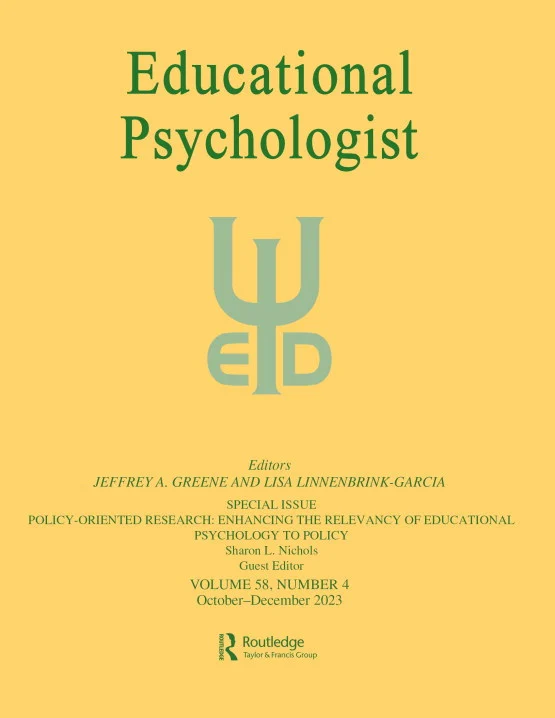元认知在很多方面都很重要
IF 11.4
1区 心理学
Q1 EDUCATION & EDUCATIONAL RESEARCH
引用次数: 16
摘要
元认知的概念在教育心理学、发展心理学和认知心理学中越来越多、越来越广泛地出现。面对如此多样化的应用,它能否保持其作为有用结构的地位?或者它仅仅是各种各样的精神现象的总称,这些现象之间即使有联系,也很松散?在这里,我认为元认知扮演着许多不同的角色,但具有将这些角色连接在一个共享框架中的关键特征。作为该框架的核心,抑制性认知控制是元认知能力的必要条件。也有人认为元认知是一种性格,而不仅仅是能力。作为一种倾向,它的基础是认识论的,它的价值和重要性在于支持个人对自己的思想进行有效的管理。这种性格使他们能够最大限度地控制自己的思想和知识,以及他们在个人和与他人互动中修改自己信念的过程。本文章由计算机程序翻译,如有差异,请以英文原文为准。
Metacognition matters in many ways
Abstract The construct of metacognition appears in an ever increasing number and range of contexts in educational, developmental, and cognitive psychology. Can it retain its status as a useful construct in the face of such diverse application? Or is it merely an umbrella term for diverse mental phenomena that are loosely if at all connected? Here I argue for metacognition playing many diverse roles yet having key features that connect these in a shared framework. Proposed as central to this framework is the exercise of inhibitory cognitive control as a necessary condition for metacognitive competence. Also argued for is greater recognition of metacognition as a disposition, not just competence. As a disposition its foundations are epistemological, and its value and importance lie in supporting individuals’ effective management of their own minds. This disposition puts them in maximum control of what they think and know and the processes they engage in to revise their beliefs, individually and in interaction with others.
求助全文
通过发布文献求助,成功后即可免费获取论文全文。
去求助
来源期刊

Educational Psychologist
Multiple-
CiteScore
19.10
自引率
3.40%
发文量
16
期刊介绍:
The Educational Psychologist is a scholarly journal dedicated to exploring the psychology of learning and instruction. Articles in this journal encompass a diverse range of perspectives, from examining psychological mechanisms to exploring social and societal phenomena related to learning and instruction. The journal publishes theoretical and conceptual articles, as well as reviews and meta-analyses, that significantly contribute to theory or advance the methods used to explore educational psychology. Emphasizing innovation and advancing understanding, the journal does not publish articles solely reporting the methods and results of empirical studies; instead, all submissions, including reviews and meta-analyses, must offer clear implications for advancing theory. In addition to regular articles, the journal features special issues that delve into important themes in educational psychology, along with focal articles accompanied by peer commentary.
 求助内容:
求助内容: 应助结果提醒方式:
应助结果提醒方式:


